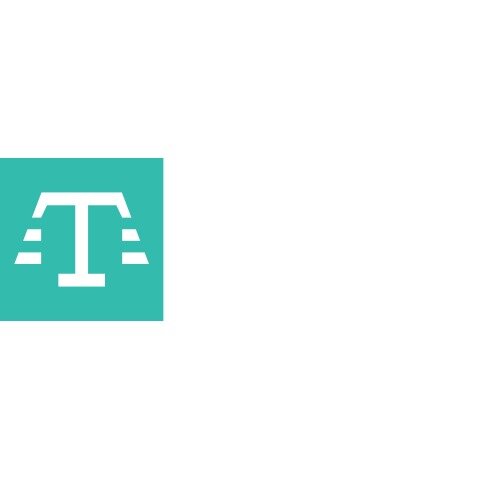Best Reinsurance Lawyers in Iran
Share your needs with us, get contacted by law firms.
Free. Takes 2 min.
Or refine your search by selecting a city:
List of the best lawyers in Iran
About Reinsurance Law in Iran
Reinsurance in Iran involves the practice of insurance companies transferring portions of their risk portfolios to other parties to reduce the likelihood of having to pay a large obligation resulting from an insurance claim. This system allows for risk management and financial stability for direct insurers. Iran's reinsurance market is regulated by the Central Insurance of Iran (CII), which sets forth the standards and practices for both domestic and international reinsurance transactions. Despite economic challenges and international sanctions, Iran continues to develop its reinsurance industry to enhance capacity and manage risks effectively.
Why You May Need a Lawyer
Legal assistance in reinsurance may become necessary in various situations. If you're an insurer, you might need a lawyer to draft or review reinsurance treaties to ensure they comply with Iranian regulations. You might also require legal interpretation during disputes over claims or contract terms. For companies entering the Iranian market for reinsurance purposes, legal guidance is crucial to understand regulatory requirements, navigate licensing processes, and maintain compliance with both local and international law. Lawyers can also facilitate negotiations with the CII and other insurers.
Local Laws Overview
Reinsurance in Iran is governed primarily by the regulations set forth by the Central Insurance of Iran. Key aspects of local laws relevant to reinsurance include:
- Regulatory Compliance: All insurers and reinsurers must comply with Iranian insurance law as structured by the CII.
- Licensing: Only licensed entities can offer reinsurance services in Iran, and licenses are issued by the CII.
- Financial Regulations: Companies must adhere to specific financial and reporting standards to ensure transparency and accountability.
- Contractual Laws: Reinsurance contracts must comply with Iranian contract law, which governs the legal obligations and rights of parties.
- Dispute Resolution: Disputes are usually resolved through arbitration or through the courts, depending on the contract terms.
Frequently Asked Questions
What is reinsurance?
Reinsurance is the process by which insurance companies transfer portions of their risk to other insurance entities to manage potential large-scale claims.
Who regulates reinsurance in Iran?
The Central Insurance of Iran (CII) regulates reinsurance, setting forth standards and issuing licenses to domestic and foreign reinsurance companies.
Can foreign companies provide reinsurance services in Iran?
Yes, but they must obtain the necessary licenses from the CII and comply with Iranian laws and regulations.
What are the main types of reinsurance contracts?
The main types are treaty reinsurance, which covers broad insurance policies, and facultative reinsurance, which is arranged for specific individual risks.
How are reinsurance disputes resolved in Iran?
Disputes are commonly resolved through arbitration as preferred in many contracts, but they can also be settled through the judicial system if needed.
What is the role of a reinsurance broker?
A reinsurance broker acts as an intermediary between insurers and reinsurers to negotiate terms and facilitate reinsurance transactions.
What financial standards must reinsurance companies comply with?
Reinsurance companies must meet the financial standards as set by the CII, including transparency in financial reporting and maintaining sufficient reserves.
Are there any international sanctions that affect reinsurance in Iran?
Yes, international sanctions, primarily those imposed by Western countries, can affect transactions and operations, making compliance and legal guidance essential.
How does reinsurance impact policyholders?
Reinsurance indirectly impacts policyholders by enhancing the financial stability of insurers, ensuring they can meet large claims efficiently.
What are the legal implications of non-compliance with Iranian reinsurance laws?
Non-compliance can result in penalties, revocation of licenses, and legal disputes, potentially damaging the company's reputation and financial standing.
Additional Resources
For additional guidance, consider reaching out to the Central Insurance of Iran (CII), which provides detailed regulatory information. Professional legal associations in Iran and international insurance law bodies can also offer valuable resources. Consultation with law firms specializing in insurance and reinsurance law is highly recommended.
Next Steps
If you require legal assistance in the field of reinsurance, begin by consulting with a lawyer specialized in Iranian insurance law. Prepare detailed documentation of your needs and any relevant contracts or agreements. It’s also advisable to ensure your prospective legal advisor has experience with both local and international reinsurance laws to navigate any complexities that may arise effectively. Consider contacting the Central Insurance of Iran for any regulatory inquiries.
Lawzana helps you find the best lawyers and law firms in Iran through a curated and pre-screened list of qualified legal professionals. Our platform offers rankings and detailed profiles of attorneys and law firms, allowing you to compare based on practice areas, including Reinsurance, experience, and client feedback.
Each profile includes a description of the firm's areas of practice, client reviews, team members and partners, year of establishment, spoken languages, office locations, contact information, social media presence, and any published articles or resources. Most firms on our platform speak English and are experienced in both local and international legal matters.
Get a quote from top-rated law firms in Iran — quickly, securely, and without unnecessary hassle.
Disclaimer:
The information provided on this page is for general informational purposes only and does not constitute legal advice. While we strive to ensure the accuracy and relevance of the content, legal information may change over time, and interpretations of the law can vary. You should always consult with a qualified legal professional for advice specific to your situation.
We disclaim all liability for actions taken or not taken based on the content of this page. If you believe any information is incorrect or outdated, please contact us, and we will review and update it where appropriate.
Browse reinsurance law firms by city in Iran
Refine your search by selecting a city.










